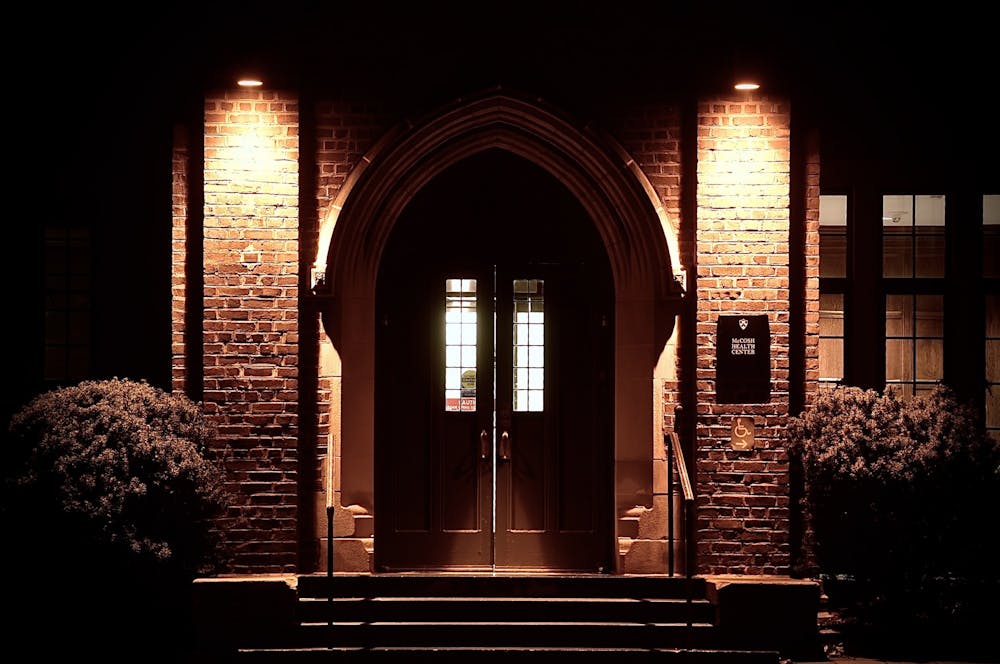What once was a temporary lockdown, assumed to last a month or two, has stretched into a socially isolated summer and a fall term off-campus. What once were normal activities — getting coffee, seeing friends at a party, attending a lecture — seem hopelessly out of reach. And, what once were the University’s on-campus mental health resources, accessed by some but ignored by many, have become crucial for students facing COVID-19’s emotional toll.
“This pandemic has resulted in increased mental health distress among all of us,” said Dr. Calvin Chin, director of Counseling and Psychological Services (CPS). “Students report feeling isolated, anxious, and depressed. I feel like the services that CPS provides are even more important as a result of the pandemic.”
Along with all campus activities, clubs, and classes, CPS has adapted to a virtual setting. Paper forms have gone digital; counseling has moved to Zoom. Virtual therapy groups and workshops, listed on the CPS website, provide a forum for affinity-based support, meditation, and other community programming.
Yet, the paths students have taken to receive virtual counseling, whether through CPS or external sources, have been as varied as their quarantine experiences.
Mark Dodici ’22, Head Multimedia Editor at The Daily Princetonian, first sought out mental health services from CPS in the first half of the 2020 spring semester. When the pandemic hit in March, however, his experience with counseling changed.
“I had a meeting with my counselor over Zoom, and I found it really awkward, not as natural or open as it had been in person,” Dodici said. “It didn’t feel as natural to me to expose myself in the same way.”
“Whereas in person I would have gone into her office and let my guard down,” he continued, “it felt like I was just getting onto another social call. There was a facade I had put up, as if I were talking to friends.” He canceled his telehealth calls soon after, initially deciding against continuing care online.
After several emotionally taxing months of quarantine, Dodici chose to reach out to his CPS counselor once again. Since August, he feels that his experience with CPS has been at least as effective as it was in person.

“I’ve grown into it and become more comfortable,” Dodici said. He expressed his appreciation of the University’s resources and their adjustment during the pandemic.
Not every student who has requested counseling has done so through campus programs. One member of the class of 2024, granted anonymity due to their experience’s personal nature, opted not to use CPS. In case they needed to defer or leave the school, they did not want their mental health resources tied with Princeton. During quarantine they sought out mental health services on their own; COVID unemployment benefits made therapy financially feasible.
“I was fired from my job because of the pandemic,” they said, “so I was getting pandemic unemployment insurance, which was more than I was making. I had extra money and was able to afford therapy more than I was able to before.”
Along with financial viability, they felt that the extra alone time afforded by quarantine was one factor that motivated them to seek out counseling.

“When you’re working most of the day, you’re thinking about other things. When you stop, you realize, ‘Oh, I should probably work on myself a little bit as well!’”
With increased self-awareness and income under their belt, they began their search for a therapist in earnest. Unlike Dodici, they found Zoom appointments more accessible than in-person sessions.
“Going into places in person makes me nervous,” they said, “and the fact that I could have appointments on Zoom made it a little easier. I felt like there was less activation energy for me to log onto a Zoom appointment.”
The student found the transition to online therapy smooth. Others, however, conveyed far different experiences.
Although Maria Russo ’22 had utilized CPS resources since her second semester at the University, her experience with campus mental health resources has been tumultuous during the pandemic. Late last summer, Russo decided to move out of state for the semester. When she communicated her decision to CPS, she learned that CPS providers would be unable to see her if she returned to her home state. That meant she would lose access to her psychiatrist, whom she relied on to prescribe medication.
A CPS employee was tasked with connecting her with a provider who worked in her new state of residence.
“Basically, [the employee] told me to contact my insurance, and that was really all she did,” Russo recounted. “It was not super helpful.”
Russo said that when she contacted her private insurance, she was told her plan did not cover any local providers. As a result, Russo paid out of pocket for a three-month supply of medication, which she purchased before leaving campus.
When she arrived in her home state, she made a discovery: because her insurance did not cover any providers in her area, she would have qualified for Princeton’s student health plan. Her medication would have been entirely covered by financial aid.
“If CPS had just told me that because my insurance was insufficient, I could have gotten the student health plan, I could have avoided this entire mess of paying hundreds of dollars to get my medication,” she said.
When asked to comment on Russo’s experience, Chin responded, “Generally, we do our best to assist students in getting connected to outside providers if we are unable to treat them within CPS. We have a wide network of referral options within Princeton, but may not know of specific providers located outside of New Jersey.”
He expressed regret that a student felt they did not receive adequate support and urged students to fully read their insurance benefits before waiving enrollment in the student health plan. He also stressed that students may contact CPS for assistance.
“Any student who has concerns about getting connected to an outside provider is encouraged to contact us for assistance at any stage in the process,” Chin said.
Chin also discussed the challenges CPS has faced in helping students who live outside of New Jersey.
“State laws around licensure often prohibit counselors from delivering mental health services across state lines,” he explained. “We have been applying for temporary licensure in states that allow this so that we can see students who live outside of New Jersey. In states that don’t allow for cross state practice, we try to identify local referrals that students can access for mental health. We will continue to see students for care coordination until we can get them connected to local resources.”
As students adjust to situations that have been deemed, again and again, “unprecedented,” demand for mental health resources has become ever more acute. Despite a myriad of challenges, CPS is working to serve as an avenue for help.
The students interviewed for this piece expressed mixed reactions about CPS’ efficacy, but they uniformly emphasized the importance of tending to mental health.
“There’s a lot that we’ve been repressing over the past few months,” Dodici said. “I would definitely suggest to anyone who thinks it would be at all beneficial — and even those who don’t think it would be beneficial — to try to reach out and find counseling.”








